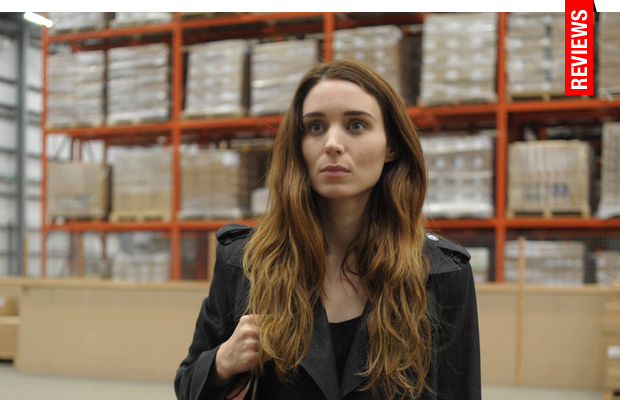Reviews
Una | 2016 BFI London Film Festival Review
Breaking the Taboo: Andrews’ Courageous Analysis of an Agonizing Affair
A young woman confronts her predator after an interval of fifteen years in the taut drama Una, adapted for the screen by Scottish playwright David Harrower from his own critically praised theatre production Blackbird. First time film director Benedict Andrews, whose previous credits featured a range of acclaimed theatre adaptations including A Streetcar Named Desire and The Maids, handles the sensitive subject matter with diplomatic tactfulness, where the focus is less on the abusive nature of the relationship than on its after effects, filtered through varying perspectives and unexpected turns. The film deliberately shies away from imposing ethical judgments on its characters and leaves the role of the moral compass to its viewers. And yet this is an unflinching and powerful examination of entangled emotions, including but not limited to desire, guilt, and abuse, all of which painfully surface throughout a claustrophobic setting.
The film begins by portraying the eponymous protagonist Una (Rooney Mara) as a woman of contradictions. She seems to lead a hedonistic life: at a nightclub she seeks sexual encounters with anonymous men, only to return at dawn to her childhood home, where she still lives with her mother. Next day, she drives to a nearby town to visit what is assumed an old acquaintance. But at this remote warehouse, Una hides behind corners to confront a man that damaged her fifteen years ago, when she was just a teenager. Eventually, she finds Ray (Ben Meldensohn), who is known to his colleagues as Peter in this corner of the world.
The couple confine themselves to a staff common room and an uncomfortable discussion ensues, with each character unpacking the knots of each other’s emotional instability in an attempt to face the tormenting past that haunts both. However, routine developments in the warehouse frequently disrupt their turbulent conversation, resulting in Ray being chased after by his boss and co-worker Scott (Riz Ahmed). Gradually, the roles are reversed in this complex cat-and-mouse game: the hunter is now hunted, and it is Una who pursues Ray, culminating in an enigmatic finale that does not quite unfold the mystery that initiated her search in the first place.
Mara is exceedingly eloquent in capturing Una’s innocent yet scarred vulnerability, with her vacant eyes, hesitant body language and inscrutable expressions reprising an iconic performance following yet another taboo-breaking film Carol, which depicted an unrequited lesbian affair. However, our access to Una as a tormented character is quite the uncharted territory in comparison. Una’s intentions are never explicit, but one can all but assume that her quest straddled between reconciliation and confrontation: that she found Ray’s photograph in a trade magazine and acted to face him only demonstrates her determined investigation for a clear answer in regards to Ray’s status as a pedophile.
But on that front, Andrews keeps narrative closure ambivalent and ambiguous, motivated with noble reasons in engaging our imagination and moral disposition. This is a judgment that the audience needs to make through careful thinking and evaluation. Indeed, the word pedophile itself is never mentioned out loud, the absence of which testifies simultaneously to how child abuse continues to be an unspoken predicament in today’s society as well as to the countless other scandals yet to be uncovered, despite the scale of media attention to past cases involving celebrities. Ray hints to such abominable creatures as distinguishing himself as “not one of them,” but is that enough to convince discerning members of the audience, let alone Una herself?
Nobody can tell, because the film is powerful precisely for its ability to bypass such easy temptations in moral condemnation. Rather, it can be thought of as a cinematic exploration of the relationship between memory and trauma, referencing films such as Hiroshima Mon Amour where two conflicting experiences co-exist in an intertwined fashion within the subjectivity of a character. In this case, Una’s fragmented recollection of this traumatic affair is conveyed through disjunctive editing and muted sound effects that obscure her sense of identity, as well as hard cuts that counterpoint scenes of quiet contemplation with loud music.
Another inevitable reference is Lolita, both the source novel by Vladimir Nabokov and the subsequent adaptations. But Lolita was written from the perspective of the male seducer, whereas Una is told from the point of view of the adolescent female victim – perhaps more precisely from the woman she becomes. This is a daring, humanist film that wants to understand that thin line between abuse and love, and asks incisive questions about a difficult issue: questions that will no doubt continue to linger on our minds for time and again.
Reviewed on October 10th at the BFI London Film Festival. 94 Minutes
★★★½/☆☆☆☆☆
Emre Çağlayan is a film writer, researcher and independent scholar currently living in Canterbury, United Kingdom. He completed a PhD in Film Studies at the University of Kent, with a dissertation examining the history and aesthetics of slow cinema. In 2016, he participated at the Sarajevo Film Festival's Talents Press programme and continues to teach film courses in the UK. Top Films From Contemporary Film Auteurs: Almodóvar (Broken Embraces), Ceylan (Uzak), Dardennes (The Son), Haneke (Caché), Hsiao-Hsien (A Time to Live, a Time to Die), Kar-wai (In the Mood for Love), Kiarostami (Close-up), Tarr (Werckmeister Harmonies), Reygadas (Battle in Heaven), Van Sant (Last Days), von Trier (The Five Obstructions).

























